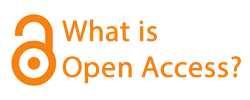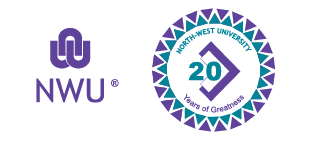
- Open Access (OA) is about providing free online access to research output.
- It permits any user to read, use, re-use, distribute or download research as long they acknowledge the original author/creator.
- It can be applied to all forms of published research output, i.e. conference papers, books, monographs, etc.
Benefits
- No financial barriers to accessing research outputs.
- A wider audience can read, use and share research publications.
- Society gets to benefit from the research that is conducted with the support of taxpayers' money.
- Increases researchers' visibility, citations, and impact.
- The University receives more funding due to a more significant research impact.
Open Access Mandates and NWU Library Initiatives
Open Access Mandates
The NWU committed to Open Access by signing the Berlin declaration and is further guided by the NRF's Open Access statement:
“From 1 March 2015, authors of research papers generated from research either fully or partially funded by NRF, when submitting and publishing in academic journals, should deposit their final peer-reviewed manuscripts that have been accepted by the journals, to the administering Institution Repository with an embargo period of no more than 12 months.“
NWU Library Initiatives
- Hosts and maintains the Open Access Institutional Repository, Boloka, which collects, preserves, and distributes NWU research material at no cost to the user.
- Boloka (NWU-IR) hosts Open Access journals and subscribes to databases hosting OA journals.
- There are dedicated Librarians to assist researchers with uploading their outputs to Boloka.
- Provides a search platform for finding Open Access accredited journals
- Open Access Week
Open Access Publishing
Author information
Before selecting a journal for publication of an article
- distinguish between full and hybrid open-access journals.
- check if the journal complies with the funder's requirements on Sherpa/Juliet, Sherpa/Fact.
- read the publisher’s and journal's Open Access policies on Sherpa/Romeo.
- search for accredited journals.
- beware of questionable/predatory open-access journals.
- ask your research librarian for assistance if you are uncertain about a journal's credibility.
Authors' rights
Authors may alter the copyright agreement with the publisher.
- the right to reproduce or distribute the article for any use relating to education or other non-commercial use.
- to authorise others to use the article for non-commercial use.
- to distribute the article for coursework or in any other digital open-access platform.
- to deposit post-print/pre-print to Boloka (Read relevant funder's, publisher's and journal Open Access policies).
More information
- SPARC Author Addendum - a legal instrument that modifies the publisher's agreement and allows you to keep fundamental rights to your article.
- Creative commons - apply for a creative commons licence to share information online.
- Sherpa/Romeo publisher's copyright policies & self-archiving
- Open Access publishers: BioMed Central, AOSIS, etc.
Journal information
Publish in Open Access Journals
Gold: Article Processing charge (APC)
Check Sherpa/Juliet, Sherpa/Fact for the funder's Open Access policy.
The author has to pay an Article Processing charge (APC), or the funder might provide OA Article publishing charge.
Authors may publish on full Open Access journals where publishers freely make articles available online for public access.
Authors may publish in subscription journals with an open-access publishing option.
Basic indicators of legitimacy
Methods for investigating a journal include visiting its website and identifying research-associated scholars and the publisher. Importantly, talk to colleagues.
Check Sherpa/Romeo for publisher’s and journal Open Access policies.
- Does the journal have an International Standard Serial Number (ISSN)?
- The website should have an email, street address, and working phone number.
- Is the journal listed in the Directory of Open Access Journals (DOAJ)?
Not all legitimate, open-access journals are listed in the directory.
- Accredited list of Open Access journals
- Search open-access journals on A-Z databases flagged with the OA logo.
- Is the publisher a member of the Open Access Scholarly Publishers Association (OASPA)?
(Source: Columbia University Libraries)
Deposit research output on Boloka: NWU Institutional Repository
Green: Free for the author and free access to the user.
NWU researchers must deposit post-prints (peer-reviewed - commonly called author's final version) articles into Boloka.
Articles should be submitted for inclusion into Boloka after they have been approved and are ready for publishing.
n article may be made available immediately or after 6-12 months after the report has been published, depending on the publisher's Open Access policy.
Check Sherpa/Romeo for publisher's and journal Open Access policies.
Why do you need to deposit research to Boloka? See NRF statement, 2015
All major search engines, including Google Scholar, harvest Boloka and Google Scholar.
To increase the visibility, availability and impact of the research output.
Other publications to deposit on Boloka:
- Conference papers (preferably Peer-Reviewed) can be included in Boloka as soon as the author agrees to the T&Cs and authorises the NWU to upload for public access. The author should bear in mind the publisher's Open Access policy, redistribution of material, Copyright and Intellectual Property Policy.
- NWU Theses and dissertations (Strictly those approved for the graduation ceremony)
- Inaugural Lectures
Subject Librarians can assist with
- archiving pre-print and post-print or publisher's version/PDF.
- Uploading the research output on Boloka.
- I am checking the publisher's copyright and Open Access policies.
- We are creating a complete record of the article, placing an embargo period where necessary or attaching Full text.
Open access content
 Read more about the new Open Access Browser Button - the Button will search for available Open Access material.
Read more about the new Open Access Browser Button - the Button will search for available Open Access material.
- Accredited list of Open Access journals
- NWU Library homepage: A-Z databases flagged with the OA logo
- Boloka: Institutional Repository
Boloka (NWU-IR) is the primary storage of all NWU Electronic Theses and Dissertations (ETDs) - DaYta Ya Rona: NWU Research Repository (figshare)
- NWU digital theses and dissertations
- Directory of Open Access Journals (DOAJ)
- Directory of Open Access Books (BOAB)
- CORE
- Open Education Resources Africa
- Technology and software
- Open Access Theses and Dissertations
